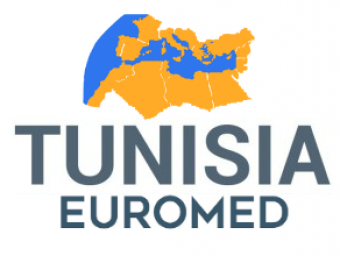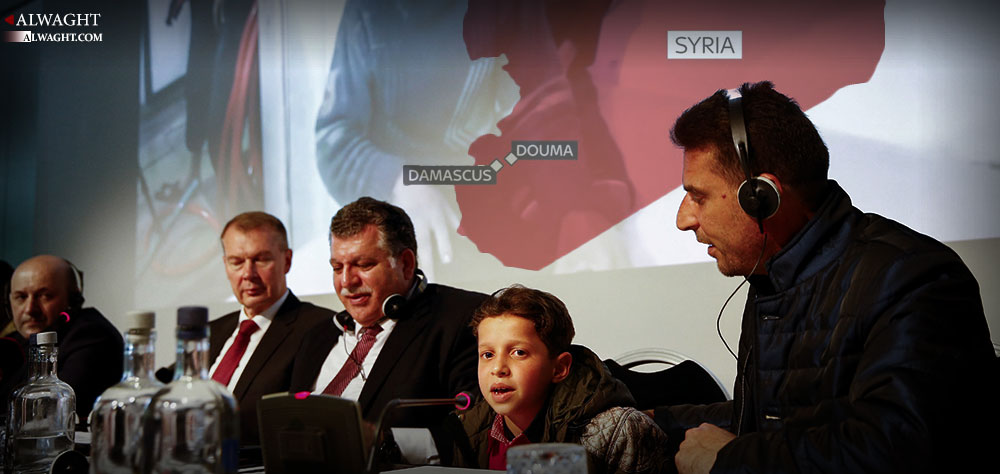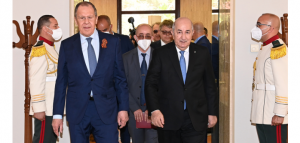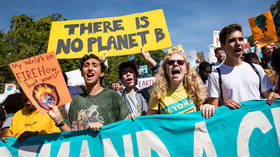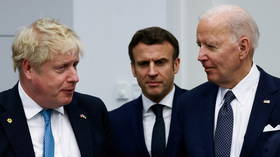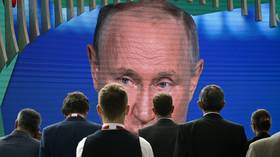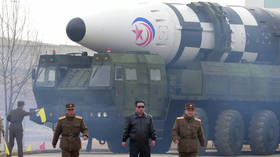U.S. Africa Command is a small combatant command with a large mission that they are doing deftly, Secretary of Defense Lloyd J. Austin III said today at the command’s headquarters in Stuttgart, Germany.
Austin and Army Gen. Mark A. Milley, the chairman of the Joint Chiefs of Staff, spoke as Army Gen. Stephen J. Townsend turned over command to Marine Corps Gen. Michael E. Langley.
1:21:34PlayVideo Player
The command is only 15 years old and has embraced its mission of “working shoulder-to-shoulder with our partners” to make all nations safer and more prosperous, Austin said.
America’s most important advantage is its unparalleled network of allies and partners that is at the heart of U.S. National Defense Strategy.
Secretary of Defense Lloyd J. Austin III delivers remarks.
Africa is a huge and diverse continent with hundreds of languages, multiple ethnic backgrounds, different religions and a range of cultures. The nations of the continent have much promise, but also face many threats. “The continent is on the front lines of many of this century’s most pressing threats — from mass migration to food insecurity, from COVID-19 to the climate crisis, from the drumbeat of autocracy to the dangers of terrorism,” Austin said. “These challenges threaten us all together. So, we must tackle them all together.”
Africom is a prominent portion of this effort alongside U.S. partners from the State Department, the Agency for International Development and more, Austin said. “Every day, Africom works alongside our friends as full partners — to strengthen bonds, to tackle common threats and to advance a shared vision of an Africa whose people are safe, prosperous and free to choose their own future,” he said. “We’ve seen the power of partnership in Somalia, where Africom supports our partners as they lead the fight against al-Shabaab. That cooperation is especially crucial as its attacks on civilians grow more lethal, brazen and cruel.”
A service member climbs across rope as fellow service members watch.
Al-Shabaab is only one terrorist threat on the continent. There are many groups — including al-Qaida and the Islamic States — exploiting weak governance and political turmoil in the Sahel region that stretches across the continent just south of the Sahara Desert. “These groups have taken thousands of lives — and the havoc that they cause threatens to spill across borders to undermine security in Southern Europe and beyond,” Austin said.
Africom is also supporting other efforts to make Africa safer including efforts to unlock the continent’s opportunities, to deepen military interoperability and build stronger democratic institutions. “This work isn’t easy,” the secretary said. “Across Africa, those who support democracy, freedom and the rule of law are battling the forces of autocracy, chaos and corruption.”
He specifically mentioned Tunisia where events are working against the dream of self-government. “But the United States stands committed to supporting our friends in Tunisia — and anywhere in Africa — who are trying to forge open, accountable, and inclusive democracies,” Austin said.
Two men face each other holding a flag.
Every day, Africom works alongside our friends as full partners — to strengthen bonds, to tackle common threats and to advance a shared vision of an Africa whose people are safe, prosperous and free to choose their own future.”
Secretary of Defense Lloyd J. Austin III
In other parts of Africa, there are other threats to democracy. In some nations, leaders are cracking down on civil liberties, giving in to corruption or stifling the will of the people. And some African militaries have pushed out civilian governments. “Let’s be clear: a military exists to serve its people — not the other way around,” Austin said. “And militaries must play their legitimate role. That means defending human rights and protecting the rule of law, not toppling civilian governments and wallowing in corruption.”
Soldiers move through desert terrain while green smoke rises behind them.
The secretary said it is particularly important now as “autocracy is on the march around the world, and that includes outsiders who are working to tighten their grip on the continent.”
The People’s Republic of China is expanding its military footprint, seeking to build bases in Africa and undermine U.S. relations with African peoples, governments and militaries, the secretary said. “Meanwhile, Russia is peddling cheap weapons and backing mercenary forces. That’s yet another reminder of Moscow’s willingness to sow chaos and threaten the rules-based international order — and it goes far beyond [Russian President Vladimir] Putin’s reckless invasion of Ukraine.”
Four aircraft fly in formation.
Africa deserves the protections of the international rules and norms that advance safety and prosperity for all. “That gives the nations of Africa a clear-eyed choice of partners,” Austin said.
Milley stressed that Africom works to counter terrorist networks that challenge freedom and stability with a small footprint. The chairman called the command “responsive and adaptive” well able to cope with the changing landscape on the ground. “This command acts at the speed of relevance,” the general said.
Secretary of Defense Lloyd J. Austin III shakes hands with Marine Corps Gen. Michael E. Langley.
Africom continues to thwart the Islamic State and al-Qaida and other terror groups, he said. Much of the action is taken by partner nations with help and training from Africom including U.S. Army security force assistance brigades, special forces soldiers executing joint combined exercise training programs, and from the U.S. National Guard working through state partnership programs.
In his remarks, Townsend said his three years in Africom have been an education. “Africa is fascinating — the continent is big, complex and diverse,” he said. “America cannot afford to ignore Africa. The continent is full of potential but also full of challenges and it’s standing at a historic crossroads. On one side is authoritarianism and foreign malign influence, along with the terrorism and food and economic insecurity that goes with it. On the other side is peace, security, democracy, development and rule of law. Africa’s future will have global impact.”
Soldiers operate a mortar system at night creating a small explosion.
Africom must continue to work with allies, partners and inter-agencies across the continent to secure enduring peace and prosperity — for Africa and for America. “America’s future security, and I believe prosperity, depends on a more secure and prosperous Africa,” he said. “A few bucks and a few troops can go a long way there — we can afford it.”
The change of command ceremony was itself significant. A senior defense official traveling with Austin told reporters that African leaders see an African-American secretary of defense, an African-American commander of U.S. Africa Command and a deputy assistant secretary of defense for African affairs of African descent.
Secretary of Defense Lloyd J. Austin III meets with service members.
“There’s probably a sense that they have a connection to the diaspora that they should be tapping into,” the official said. African leaders see these leaders “focusing on the security challenges which are most important to our African partners.”
Langley kept his remarks on point. He thanked Townsend for his efforts at the command and vowed to continue the work to build partnerships in Africa.
Langley’s father — an Air Force master sergeant — raised the general and his three siblings alone after the general’s mother died. “Dad, this one’s for you,” the general said.
Related Speech: Remarks by Secretary of Defense Lloyd J. Austin III at U.S. Africa Command’s Change of Command Ceremony (As Delivered)
Related News Release: Readout of Secretary of Defense Lloyd J. Austin III’s Visit to United States Africa Command
austin defense secretary africa command marine corps
Subscribe to Defense.gov Products
Choose which Defense.gov products you want delivered to your inbox.
YOU MIGHT ALSO LIKE
Pallets are tied down with webbing in an aircraft. – Pallets of ammunition bound for Ukraine are secured onto a commercial plane during a security assistance mission at Dover Air Force Base, Del., July 21, 2022.
Spotlight Support for Ukraine
Support for Ukraine
Four service members observe large artillery as its fire power light’s up the night sky. – Army paratroopers assigned to the Bull Battery, 4th Battalion, 319th Airborne Field Artillery Regiment fire an M119A3 howitzer during an exercise with Moroccan troops in Morocco, June 25, 2022. This training is part of Exercise African Lion 22 in the Grier Labouhi Training Area, Morocco.
News Defense Official Discusses New U.S. Sub-Saharan Strategy
Defense Official Discusses New U.S. Sub-Saharan Strategy
A man in formal business attire sits behind a microphone. – Secretary of Defense Lloyd. J. Austin III addresses the 15th Conference of Defense Ministers of the Americas in Brasilia, Brazil, July 26, 2022. The conference is the Western Hemisphere’s premiere defense forum for strategic-level engagement among defense and security officials in the Americas.
News Austin Launches New Round of Discussions With Hemispheric Partners
Austin Launches New Round of Discussions With Hemispheric Partners
Secretary of Defense Lloyd J. Austin III walks along a Pentagon hallway with South Korea’s Defense Minister and others. – Secretary of Defense Lloyd J. Austin III hosts South Korean Defense Minister Lee Jong-sup for talks at the Pentagon, July 29, 2022.

